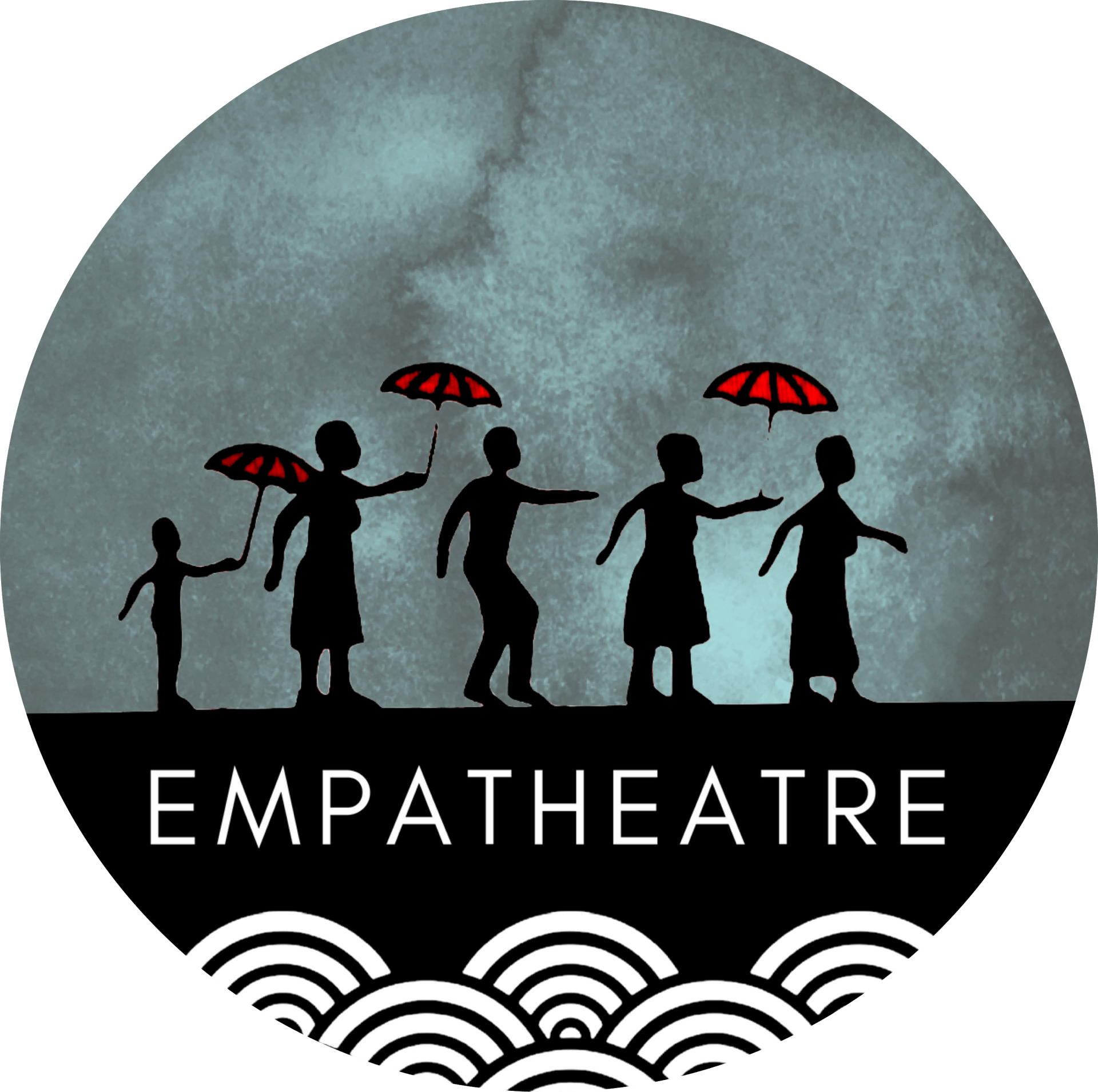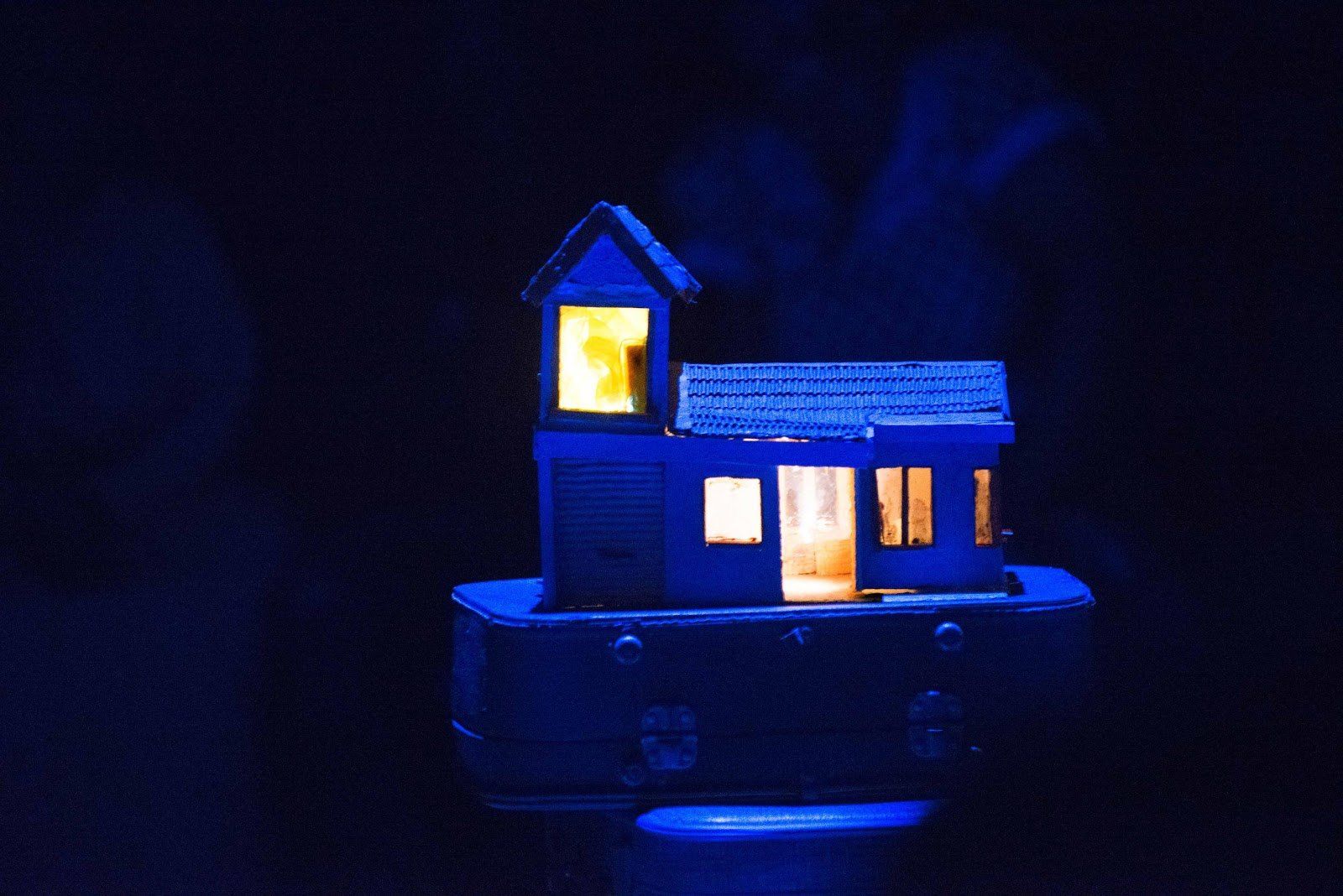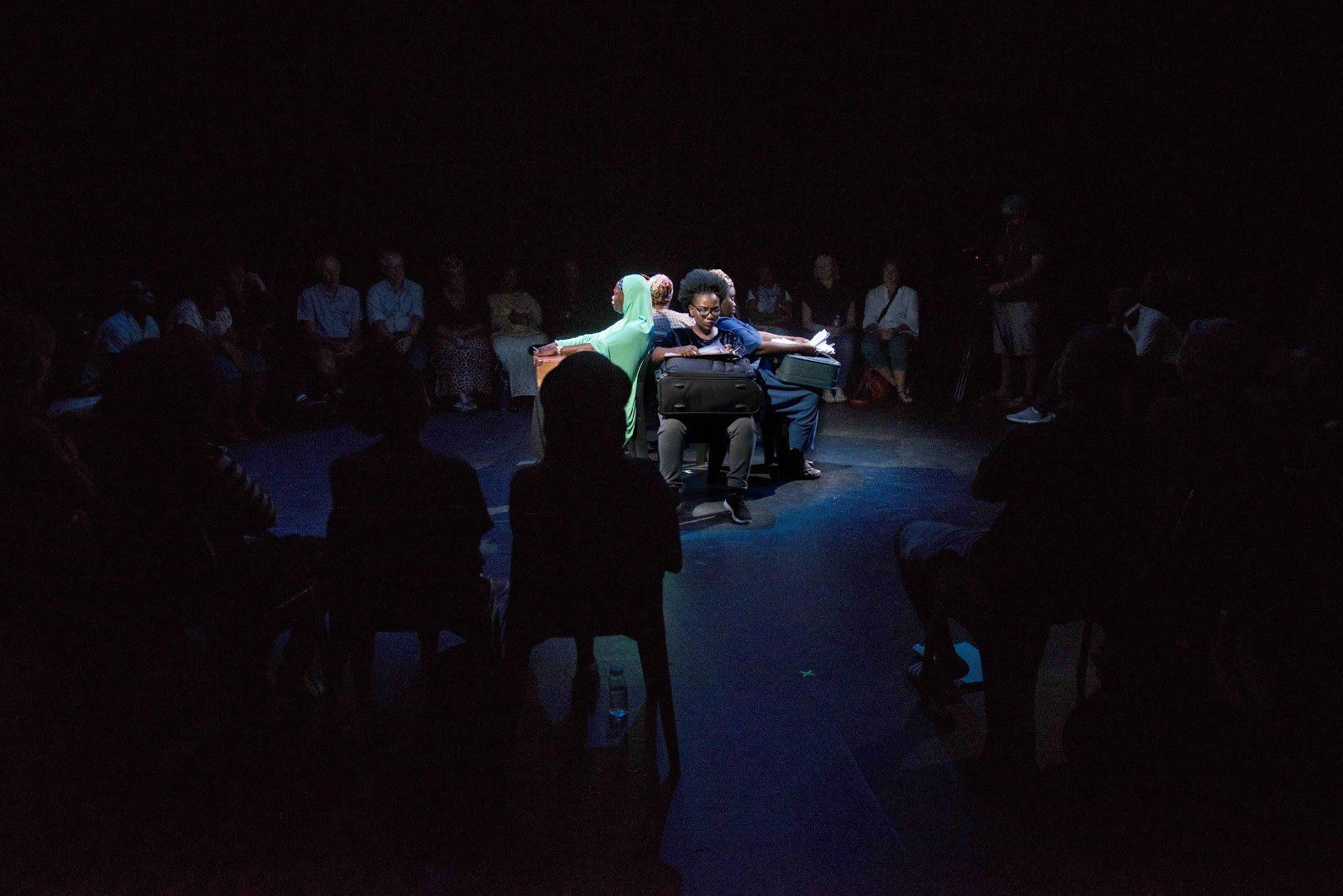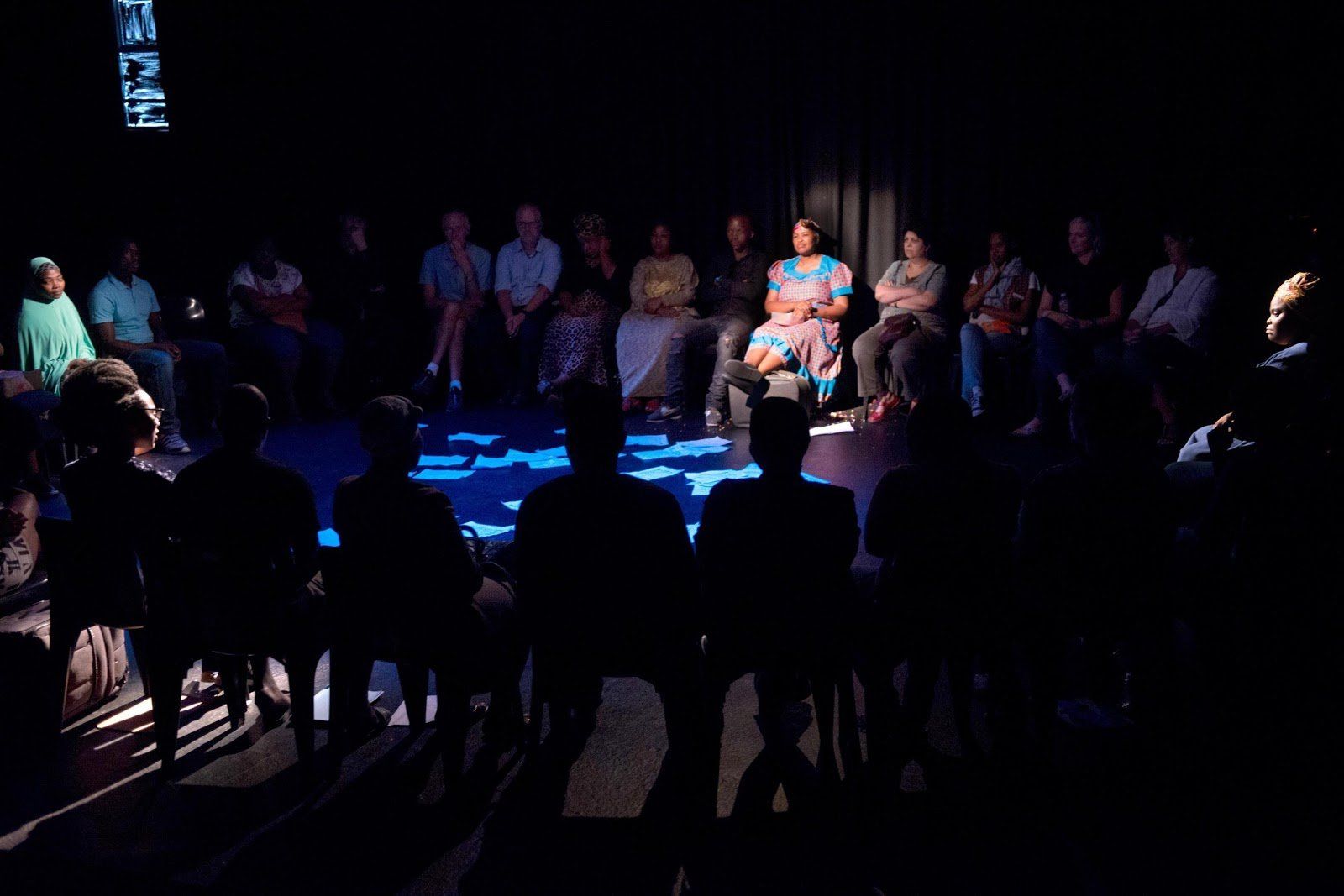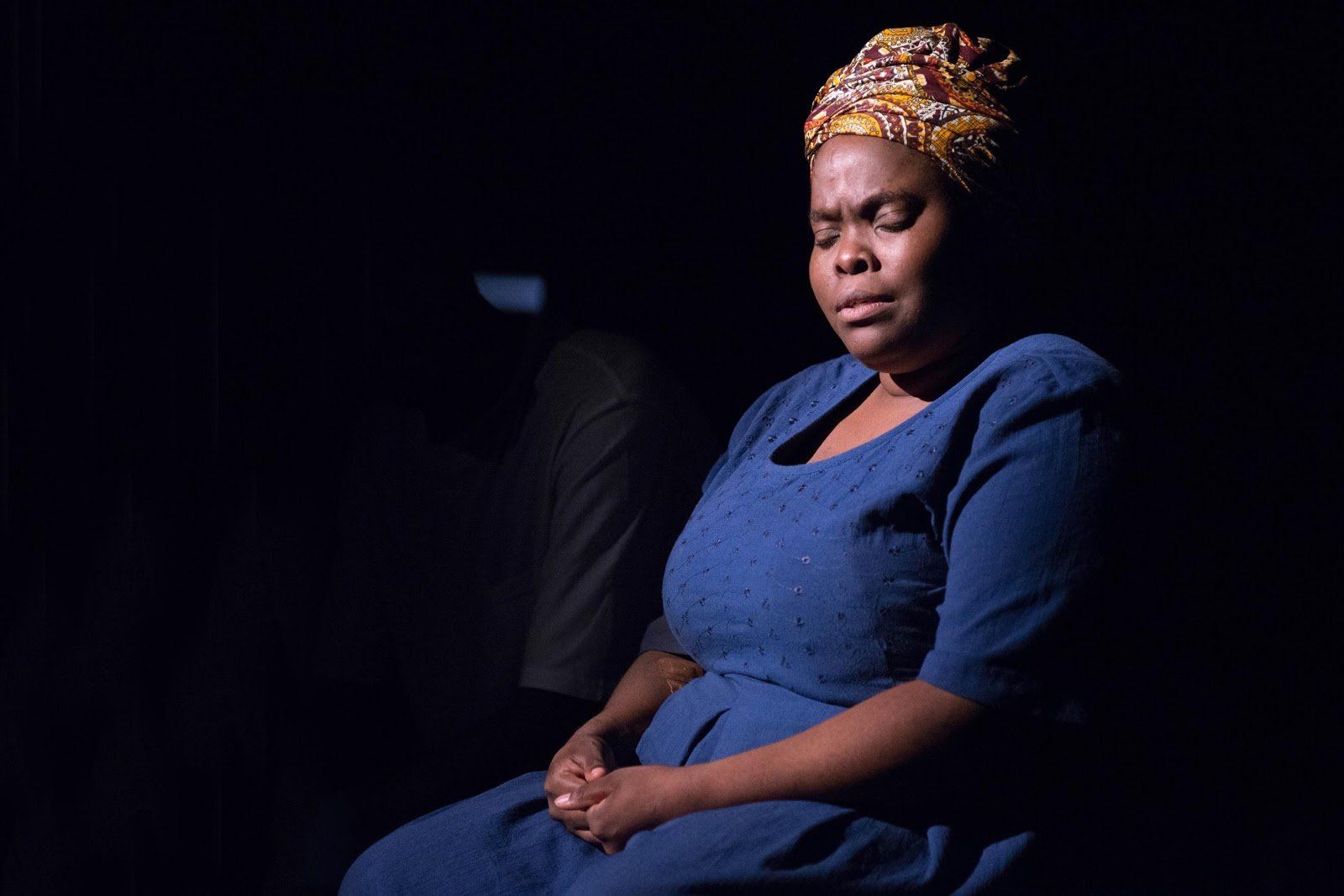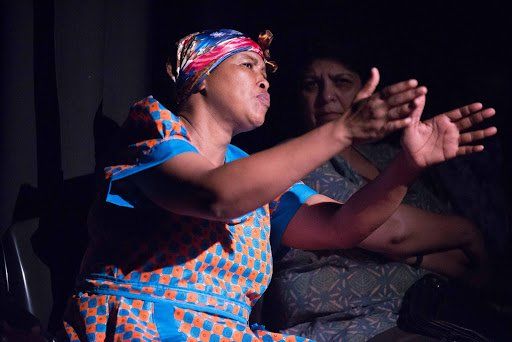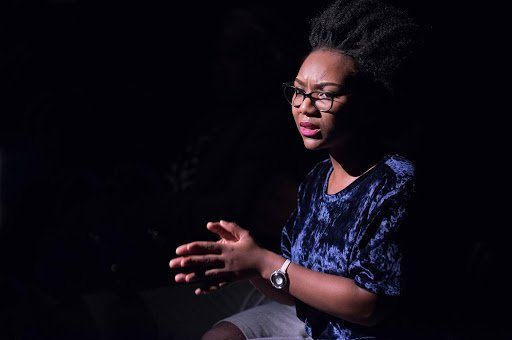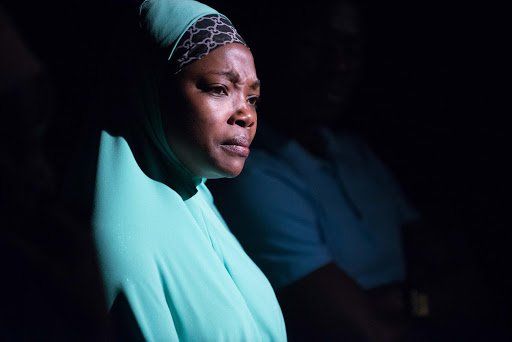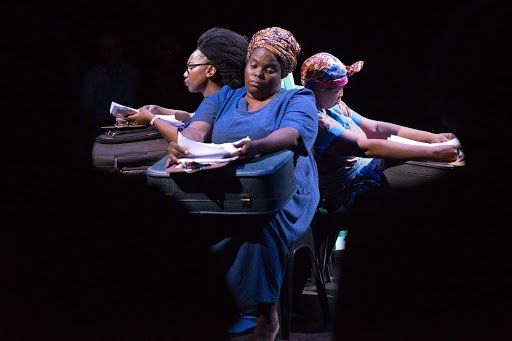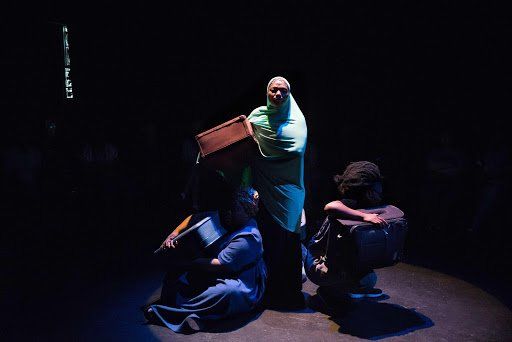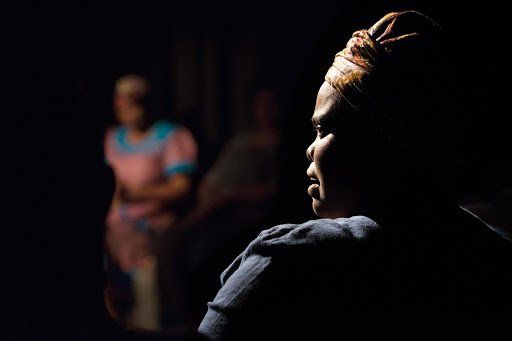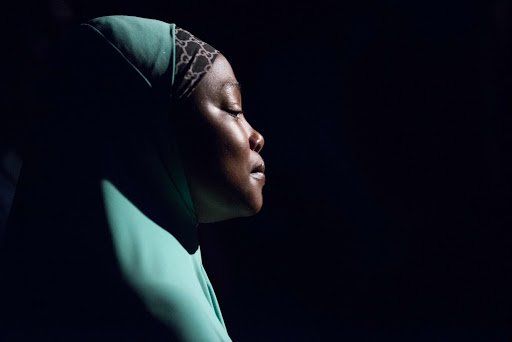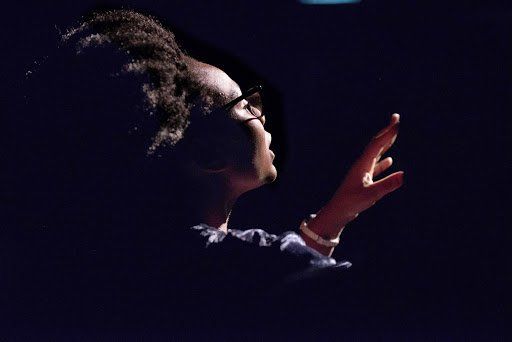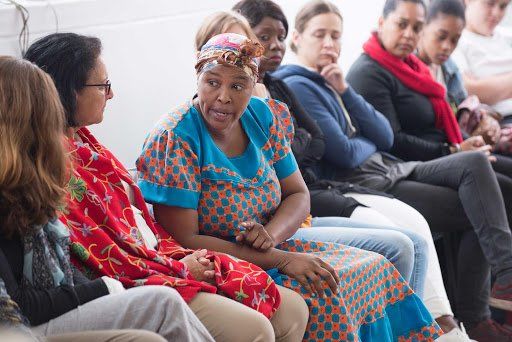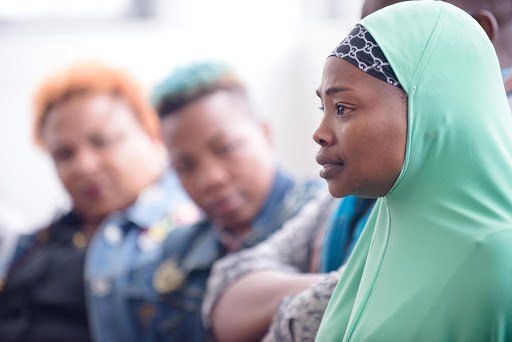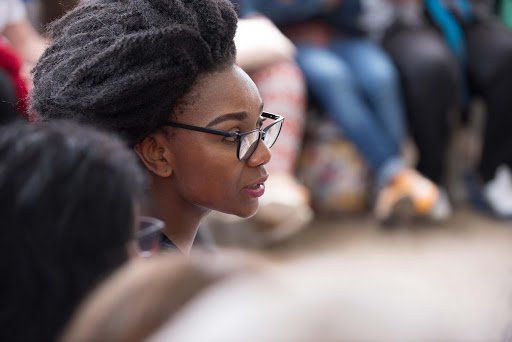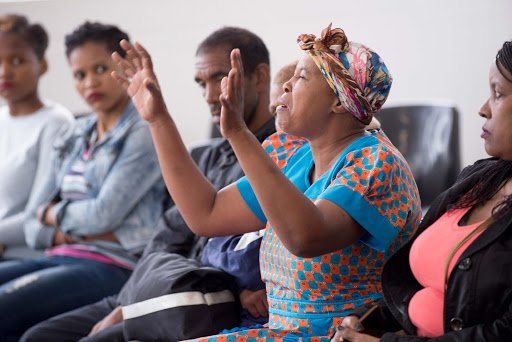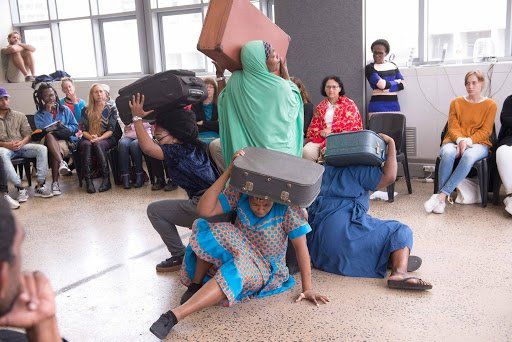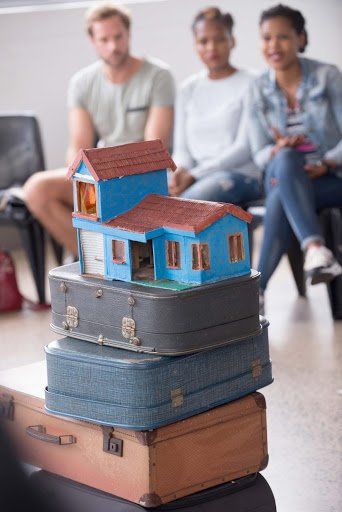The Last Country (2017-ongoing)
The Last Country was developed as part of a funded research project called Migration and the Inclusive City. The project was run in Durban as a collaborative partnership between the Democracy Development Program, the African Solidarity Network, and the Urban Futures Centre at the Durban University of Technology. Funded by the Cities Alliance the project developed a network of partners to inform an inclusive city led response to migration in Durban. The project aims, objectives and strategic report on social inclusion, gender and migration for the city can be accessed on the projects website (http://durbanmigration.org.za). The project used an oral histories methodology, triangulated with interviews and dialogue sessions in the city. Migrant women have specific experiences and perspectives that are vital to consider in the creation of responsive and inclusive policy frameworks. The project built a multi-tiered educational and awareness strategy from the research, including radio shows and theatre. The Last Country theatre production was created using the 30 oral histories collected from this project. The Last Country is performed by Mpume Mthombeni, Philisiwe Twijnstra, Nompilo Maphumulo and Zintle Bobi and has toured KZN over the last three years, playing to capacity audiences in hostels, theatres, schools, universities, community halls and for municipal and local government officials.
The Last Country is an immersive 50-minute theatrical production and explores the stories of women migrants hailing from the DRC, Zimbabwe, Somalia and rural KwaZulu-Natal. Through the stories of Ofrah from the DRC, MaThwala from Ndwedwe in KwaZulu-Natal, Aamiina from Somalia, and Aneni from Zimbabwe, the audience intimately listens to experiences of leaving home and arriving in Durban, where the women find various strategies in which to remake a sense of belonging and create a place something like home. The script carefully weaves together experiences of struggle, pain, humour, hope and resilience in ways that explore the complexities, commonalities and differences of migrant women. This intimate theatre experience seats actors and audience together in a large circle, and performances are followed by a facilitated discussion on what it means to live together in the city of Durban.
The movement of people into and out of South Africa is a current, and future, reality that political and civil society actors have a responsibility to respond to in ways which strengthen economic and social inclusivity. Since the pressure of inflows of people is mostly felt in urban environments, cities are increasingly looked to as places of innovation for political and social migration strategies. Durban receives a large number of migrants each year, both internal migrants from rural areas in the country, and external migrants from countries outside South Africa. In 2015 Durban made media headlines for the violent xenophobia attacks in the city. To date the city of Durban has no formal policy framework on migration and inclusion in the city. In addition, there has been little work that addresses how issues of gender intersect with issues of migration and refugee services in the city. This research projects aimed to contribute towards such an inclusive framework. To do so we wanted to understand the experiences of migrant women in the city.
The 30 oral histories of migrant women were collected by women migrant fieldworkers, who underwent methodology training in the collection of oral histories by the Urban Futures Centre. Many of the fieldworkers had received community care training from the Refugee Social Services (a partner in the project network), so they had some training in counselling, and could direct participants to other services if needed. The oral histories consisted of 10 stories from women requesting asylum seekers permits, 10 from women on various kinds of entry visas, and 10 from South African women who come from surrounding rural areas to live in one of the “hostels'' in the city centre. All the women who participated in this study told their stories in their mother tongue. The original transcripts were recorded in isiZulu, Swahili, Lingala, Thiluba, French and English, and translated into English and are available as an archive on the project website. The rich narratives in these transcripts are testimony to the bravery, reliance, pain and humour in which these women engage in urban life.
The Last Country play has now reached over 1200 audience members, and engaged them in a critical dialogue on what it means to live in an inclusive city. Audience members included the women who told their oral histories, the general public, high school children, city officials, civil society and a large group of local government officials at a dedicated performance for SALGA members (South African Local Government Association). The response from a senior municipal official, to what it was like being part of The Last Country performance best illustrates how storytelling based on empirical research shifts perceptions;
For me it was hard-hitting. It was a real wakeup call for me, something which I had not had before. And I guess when you see it in two-dimension, when you read a text book or a case study, you kind of get cynical and you almost get comfortable where you think that the researcher had a bias. Or you never fully see what the researcher was seeing through their rose-coloured glasses, and you kind of park it, and don’t ascribe much importance to it. But when you see it in front of you, and you see that the research is talking to you, and you see that it is pounding at your door, it is a whole new concept of learning and it’s a whole new concept of awakening. It was a brilliant thing! (Interview 19/03/2018)
The Last Country theatre performances were a far more successful catalysts for creating spaces of empathetic listening, as opposed to more formal research presentations like seminars and reports. Storytelling is a powerful way to make real the endeavour of collective humanity, as opposed to simply telling someone to be compliant to a checklist of human rights indicators.
The Last Country video is being used as a teaching resource at two universities. At the Oxford Department of International Development at Oxford University in the UK as an example of creative methods in oral history research. It has also been requested for use at a graduate methods course to frame discussions around representation in migration studies, at the African Centre for Migration and Society at Wits University in South Africa. In 2019 The Last Country was a gold medal finalist in the performance category at the Institute of the Humanities and Social Sciences awards.
Aneni:
There are times where I have felt so hopeless out here…so alone…so foreign…. with no one to hear me, no one to chip in and help when times get tough. I felt so stranded, so far away from everything. In the beginning I would call my husband crying and say I’m coming home, I can’t deal with this, I’m giving up…but somehow I’m still here, I’ve kept going. As a last resort I had to call home and ask for money to be sent, but I hated having to do this because I’m the one that is supposed to be sending the money home.
Aamiina:
Last week I learned that I got accepted into a beauty training course and that the RSS will pay for it! We start training in December and I will finish in February. (beat) I’m planning to open my own business because there are lots of Somali women who need beauty treatments for weddings and I am going to provide a salon for them. All women deserve a space to feel safe and beautiful. With the money I make from my new salon, I will bring my daughter out here to visit me. Can you imagine, after eight years, I will get to see her again.
Ofrah:
My dream was that once I arrived in South Africa, I would learn English and pursue my studies. I imagined that with a qualification I would be able to earn a good salary. I would be a leader in the workplace…sitting in a nice air-conditioned office, working from Monday to Friday and then on weekends I would stay at home, rest …. Go to church….spend time on the beach. (Pause) I imagined after these many years, I’d be able to save enough money to return home and build a house for my family. (Pause) I often sit on the pavement and dream of leaving but where would I go? Where would I go? There is still war in my country, you hear of people being killed every day. Everyone imagines things will get better….but it’s not getting any better.
Aamiina:
The situation at home since I arrived here has not changed. (Pause) Last month a bomb exploded in the capital of Mogadishu killing 260 people. 260 people! You come across these images in the newspapers and you ask yourself, is that the life you wish to return to? You think that I am lucky to be here. No matter how hard it is here in Durban, things are still worse there. The suffering might be similar but here…. the risk is still less.
Music begins again
Ofrah:
I am no longer the same age. I am older now. There is saying where I come from that “What we are today is the fruit of our parents’ sacrifices.” I’m not sure this is the life they imagined for me, selling on the road, but one day, by God’s Grace, I will make them proud.
Ma Thwala:
I will keep working here in Durban until I have saved enough to finish my house. Now that I have educated all my children, I can focus on my own home. It is all I think about when I am out there making and selling my bead-work. (beat) I don’t want my children to be ashamed of me…I don’t want them to be known by others as children born of a hawker.
Aneni:
What I can say is, is that my time in this country has definitely made me stronger. I was finally able to get my PHD back on track with a new supervisor and am FINALLY nearing the end. My husband leaves next week to join me here, we are thinking of starting a family soon. (pause) It makes me really happy to imagine him taking that bus trip, staring out the window and catching sight of the Indian ocean for the first time.
She rises and places her suitcase at the center of the circle
Aamiina:
I have crossed half a continent to get here. Trace you finger down a map and you will see how far I have come. (pause) When I look out onto the horizon, all I see is the sea, this is where the continent ends, there are no places, no more countries left for me to run to.
Aamiina rises and places her suitcase at the center of the circle on top of Aneni’s.
Ofrah:
There are days I stand alone at the beach-front, on the shore with the waves rushing over my feet. I pray…I pray till I have run out of words to pray with. I say ‘Father, you sent me here…..Show us all mercy, part the waves of the sea for us… guide us now to your promised land.”
She rises and places her suitcase at the center of the circle on top of Aamiina’s.
Ma Thwala:
When I return to my community I want the people to see that ja Ma Thwala went to work in the city and now look …look what she has achieved. (Ma Thwala rises and places her own suitcase on top of the pile at the center of the circle.) Everyone will welcome me. My Grandchilden will call out and say welcome home Gogo! They will say finally she is home. (She now removes a miniature house made of cardboard and glue from under her chair and places it on top of the suitcase tower) They will say she paid for every brick of that home with her own two hands….her own hard work. That is what they must think when they see me returning home.
Ma Thwala sinks back to her seat proudly surveying her home. The lights fade, leaving only the glimmer of light shining through the windows and doorways of the miniature house.
Music ends.
-End-
“Providing a similar opportunity closer to home was the astonishing, moving and profoundly brilliant Last Country – created by the all women-cast under the guidance of theatre wunderkind Neil Coppen. It is an original production, a heart-wrenching drama about the lives of four migrant women in Durban, and the challenges they face to survive in a hostile world and strive to integrate themselves into our city. For the duration of Coppen’s harrowing and beautiful production, I gained a glimpse into the reality of a displaced woman seeking out a living in an unfamiliar, unforgiving place. In a country in-which we are increasingly wary of people who are different from ourselves, it is vital to be invited to experience other realities, so that what is perhaps scary and strange can become familiar and less-intimidating. It is only when we realise the enormity of the threads which bind us, can we begin to empathise, share and heal together.”
The Mercury
“SALGA is extremely appreciative of the opportunity that your organization and team provided to enable the viewing of the theatre production ‘The Last Country’. The contribution of the entire team behind the production has certainly added value to the local government sector.”
Prashina Mohangi - Built Environment & Planning Advisor, South African Local Government Association (SALGA)
“The play was excellent. I wish it would reach a wider audience. I told my son Ben about it and he said it was the sort of this their student council would be interested in hosting at their school next year for senior pupils. If there are any plans to try and put it on in the new year please let me know” (email communication received on 24/11/2017).
Glen Robbins (Commissioner on the City Planning Commission 2018):
“I work in this environment all the time and yet to hear these stories and to hear them so powerfully you realize how many stories there are that we don’t hear, and also I have to commend again the extraordinary power of theatre to cross over barriers and to help us to connect with other human beings, so many thanks to all involved in this” (audio recordings from discussions following the performance on the 23/11/2017).
Raymond Perrier (Head of the Denis Hurley Centre)
“As a side note, I absolutely loved the play when I watched it last year and have been meaning to ask if there are any more performances planned? I’ve enthused about it to so many friends that they have asked me to let them know if it is performed again. And I would actually love to re-experience it myself” (email communication received on 29/06/2018).
Vicky Simpson (Zoë-Life)
“The show needs to go to people like me, I am a young Zulu black man...so ja...but with this set up, with this story, I know this story that is where I come from [talking about the South African Ma Thwala’s character]. So, seeing how this links to that, and that, and that, it just did something to me, it hit home! Right now I literally feel like walking out onto the street and at least smiling at someone in that attire [pointing to the actress playing Amina in her Somalian dress], because before when I saw someone like that it is like they don’t even exist, so ja, well done guys” (audio recordings of audience member after the performance on the 23/11/17).
Member of the public
“In the old Zulu woman selling on the streets, I could see my grandmother; but in the young Somali woman separated from her child, I could see myself” (young women in the audience at the KwaMashu performance 24/02/18).
Member of the public
“You made me realise how situational we are and how much ignorance and self-importance we carry at each and every point in our lives so much that acknowledging and conversing with another “different” human being isn’t as much the norm as it should be, that the places we call our comfort zones aren't as comfortable as we make them out to be! Thank you for being the voices of many, directly and indirectly. Thank you ladies and the whole team offstage for this experience, may these conversations progress and reach the ears that need to hear and attend to them the most.”
Audience member Mpume Ngwenya writing in a social media post.
Researchers:
Dr Kira Erwin (Urban Futures Centre)
Dr. Nomkhosi Gama Xulu (Urban Futures Centre)
Dr. Tamlynn Fleetwood (Urban Futures Centre)
Jeremy Grest
Concept/Script:
Neil Coppen, Mpume Mthombeni and Kira Erwin
Direction and Design:
Neil Coppen
Featuring:
Mpume Mthombeni, Philisiwe Twijnstra, Nompilo Maphumulo and Zinhle Bobi.
Production Manager:
Tamlynn Fleetwood.
Sound Design:
Tristan Horton
This project would not be possible without the additional support of Yasmin Rajah from the Refugee Social Services, Raymond Perrier from the Denis Hurley Centre, the Democracy Devleopment Program, ASONET (African Solidarity Network), and Miranda Young-Jahngeer from the UKZN Drama department.
-
Button
The Last Country explores the stories of four women migrants. Throughout the production the audience intimately listens to experiences of leaving home and arriving in Durban, where the women find various strategies in which to remake a sense of belonging and create a place something like home. In distilling the 30 oral histories into an hour long narrative, the Empatheatre writing team focused their central-image around MaThwala’s dream home in Ndwedwe, a structure she has devoted her entire adult life to saving enough money to return and retire to. Pic by Val Adamson.
-
Button
The Last Country theatre was performed in the round, with the actresses narrating their stories seated amongst the audience and occasionally moving into the center of the circle to illustrate certain pertinent moments. Performances were followed by a facilitated discussion on what it means to live together in the city of Durban. Pic by Val Adamson.
-
Button
The Last Country was performed in the round, with the actresses narrating their stories seated amongst the audience and occasionally moving into the center of the circle to illustrate certain scenes. Pic by Val Adamson.
-
Button
Philisiwe Twijnstra plays Congolese refugee Ofrah, a woman who, despite the extraordinary hardships she has endured, clings to her faith and sense of humor. “There are days” Ofrah tells the audience in the closing scene of the play, “where I stand alone at the beach-front, on the shore with the waves rushing over my feet. I pray…I pray till I have run out of words to pray with. I say ‘Father, you sent us here. Show us all mercy, part the waves of the sea for us… guide us now to your promised land.” Pic by Val Adamson.
-
Button
Mpume Mthombeni plays Ma Thwala, a Zulu woman from Ndwedwe, KwaZulu-Natal who relocates to the city to provide for her family back home and save enough money to complete the construction of her house. Throughout the production Ma Thwala dreams of returning home. “When I return to my community” she tells us, “I want the people to see that ja Ma Thwala went to work in the city and now look…look what she has achieved. Everyone will welcome me. My Grandchildren will call out and say welcome home Gogo! They will say finally she is home. They will say she paid for every brick of that home with her own two hands, her own hard work. That is what they must think when they see me returning home.” Pic by Val Adamson.
-
Button
Zintle Bobi plays Aneni a young woman who leaves her husband in Zimbabwe and travels to South Africa with the hopes to complete a PHD at a South African University. Pic by Val Adamson.
-
Button
Nompilo Maphumulo as Aamiina. After attending a performance of The Last Country, Raymond Perrier the head of the Denis Hurley Centre remarked: “I work in this environment all the time and yet to hear these stories and to hear them so powerfully you realize how many stories there are that we don’t hear, and also I have to commend again the extraordinary power of theatre to cross over barriers and to help us to connect with other human beings.” Pic by Val Adamson.
-
Button
The Last Country actresses’ Mpume Mthombeni, Philisiwe Twijnstra, Nompilo Maphumulo and Zintle Bobi bring to life a scene set in the department of home affairs waiting room. Pic by Val Adamson.
-
Button
Nompilo Maphumulo as Aamiina, narrates to us her harrowing journey from Somalia to South Africa where she laments: “I have crossed half a continent to get here. Trace you finger down a map and you will see how far I have come. When I look out onto the horizon, all I see is the sea, this is where the continent ends, there are no places, no more countries left for me to run to.” Pic by Val Adamson.
-
Button
The 30 oral histories of migrant women, used as the basis for The Last Country play text, were collected by women migrant fieldworkers, who underwent methodology training in the collection of oral histories by the Urban Futures Centre. Many of the fieldworkers had received community care training from the Refugee Social Services (a partner in the project network), so they had some training in counselling, and could direct participants to other services if needed. Pic by Val Adamson.
-
Button
The oral histories used in the devising of The Last Country consisted of 10 stories from women requesting asylum seekers permits, 10 from women on various kinds of entry visas, and 10 from South African women who come from surrounding rural areas to live in one of the “hostels'' in the city centre. Pic by Val Adamson.
-
Button
“In a country in-which we are increasingly wary of people who are different from ourselves, it is vital to be invited to experience other realities, so that what is perhaps scary and strange can become familiar and less-intimidating. It is only when we realise the enormity of the threads which bind us, can we begin to empathise, share and heal together.” Mercury theatre critic Illa Thompson writing in a review of The Last Country.
-
Button
Durban receives a large number of migrants each year, both internal migrants from rural areas in the country, and external migrants from countries outside South Africa. In 2015 Durban made media headlines for the violent xenophobia attacks in the city. Featured is Nompilo Maphumulo as Aamiina. Pic by Val Adamson
-
Button
The Last Country offers an intimate theatre experience which seats actors and audience together in a large circle. Here Zintle Bobi, playing Aneni, tells her story whilst a captivated audience listen on. Pic by Val Adamson.
-
Button
Mpume Mthombeni playing Ma Thwala during a performance of The Last Country at the Denis Hurley Centre. Pic by Val Adamson.
-
Button
Philisiwe Twijnstra plays Ofrah, a Congolese refugee in a scene from The Last Country. Pic by Val Adamson
-
Button
To date the city of Durban has no formal policy framework on migration and inclusion in the city. In addition, there has been little work that addresses how issues of gender intersect with issues of migration and refugee services in the city. This research projects aimed to contribute towards such an inclusive framework. To do so we wanted to understand the experiences of migrant women in the city. Pic by Val Adamson
-
Button
Towards the end of the play, Aamiina (Nompilo Maphumulo) articulates her hopes to the audience. “Last week I learned that I got accepted into a beauty training course and that the RSS will pay for it! We start training in December and I will finish in February. I’m planning to open my own business because there are lots of Somali women who need beauty treatments for weddings and I am going to provide a salon for them. All women deserve a space to feel safe and beautiful. With the money I make from my new salon, I will bring my daughter out here to visit me. Can you imagine, after eight years, I will get to see her again.”
-
Button
The Last Country script carefully weaves together experiences of struggle, pain, humour, hope and resilience in ways that explore the complexities, commonalities and differences of migrant women. Pic by Val Adamson.
-
Button
The Last Country director Neil Coppen speaks about his experience of adapting thirty oral histories into an hour long production in the post-show conversation. Pic by Val Adamson.
